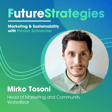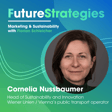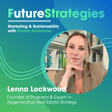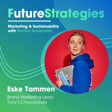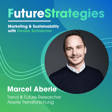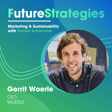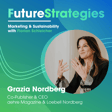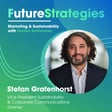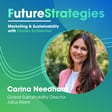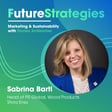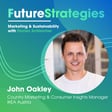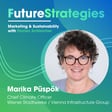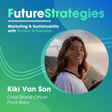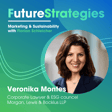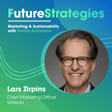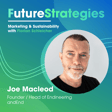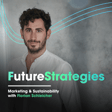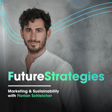
🪩 Making Sustainability Lighter - Jonas Spitra from SCHOTT about making a super complex topic simple
Jonas Spitra is the Head of Sustainability Communications at the SCHOTT technology group. In his job, he accompanies and explains the sustainability transformation of the energy-intensive speciality glass manufacturer. And he is constantly learning new things about the opportunities and challenges of change. Jonas has worked as a journalist, strategy consultant and researcher in Germany and abroad.
About the FutureStrategies podcast and your host:
I’m Florian Schleicher, a marketing strategist. I help brands gain clarity, spark momentum, and turn strategy into something that actually moves people. In 2022, I started my marketing studio FUTURESTRATEGIES. to do exactly that. I currently work with corporate clients from 11 countries.
If you want more, check out my FutureStrategies newsletter – weekly inspiration on marketing, strategy and sustainability.
And if something’s blocking your brand from doing its best work, let’s talk.
